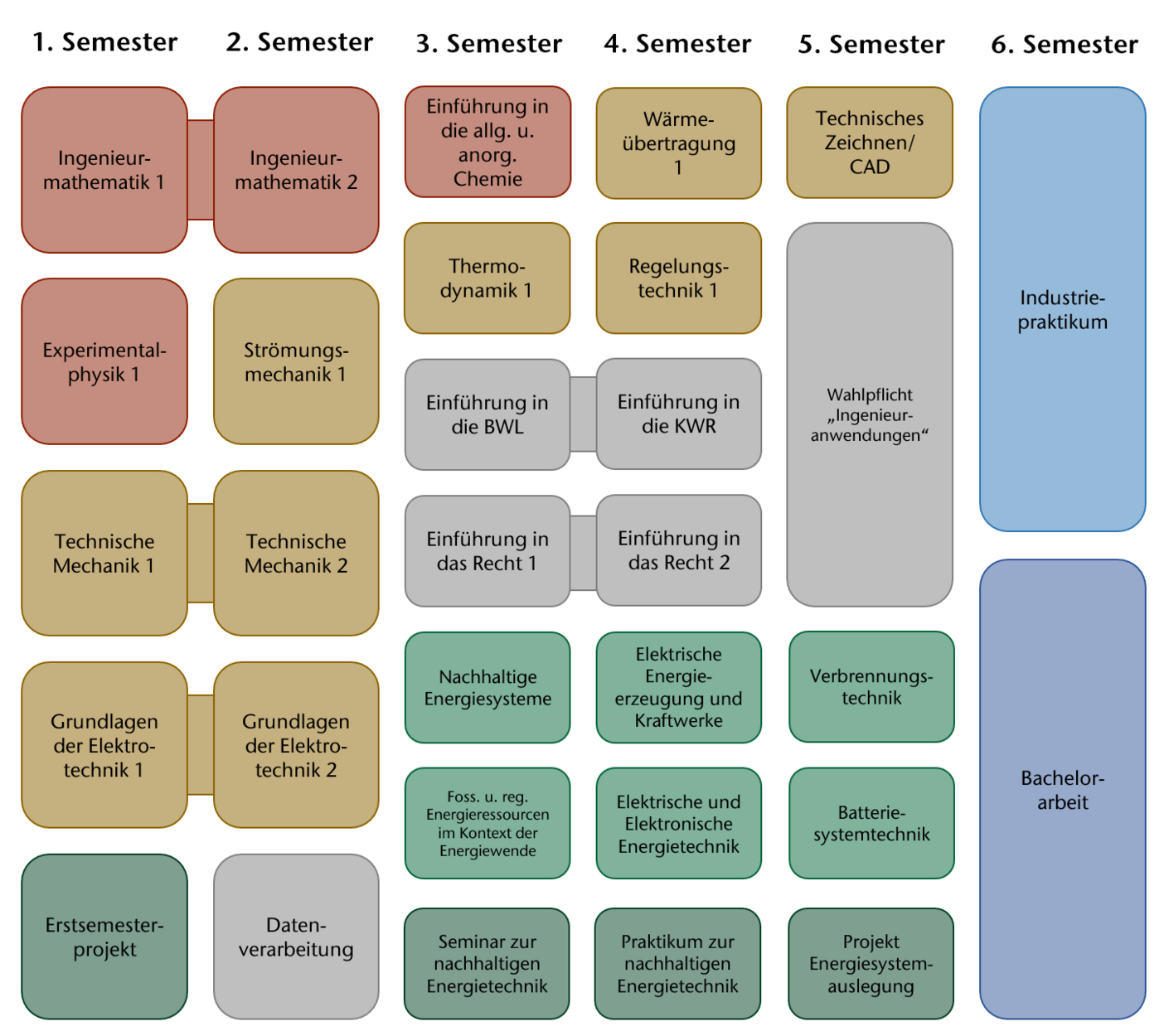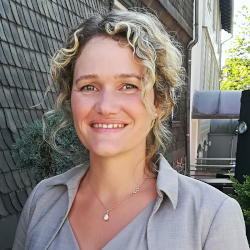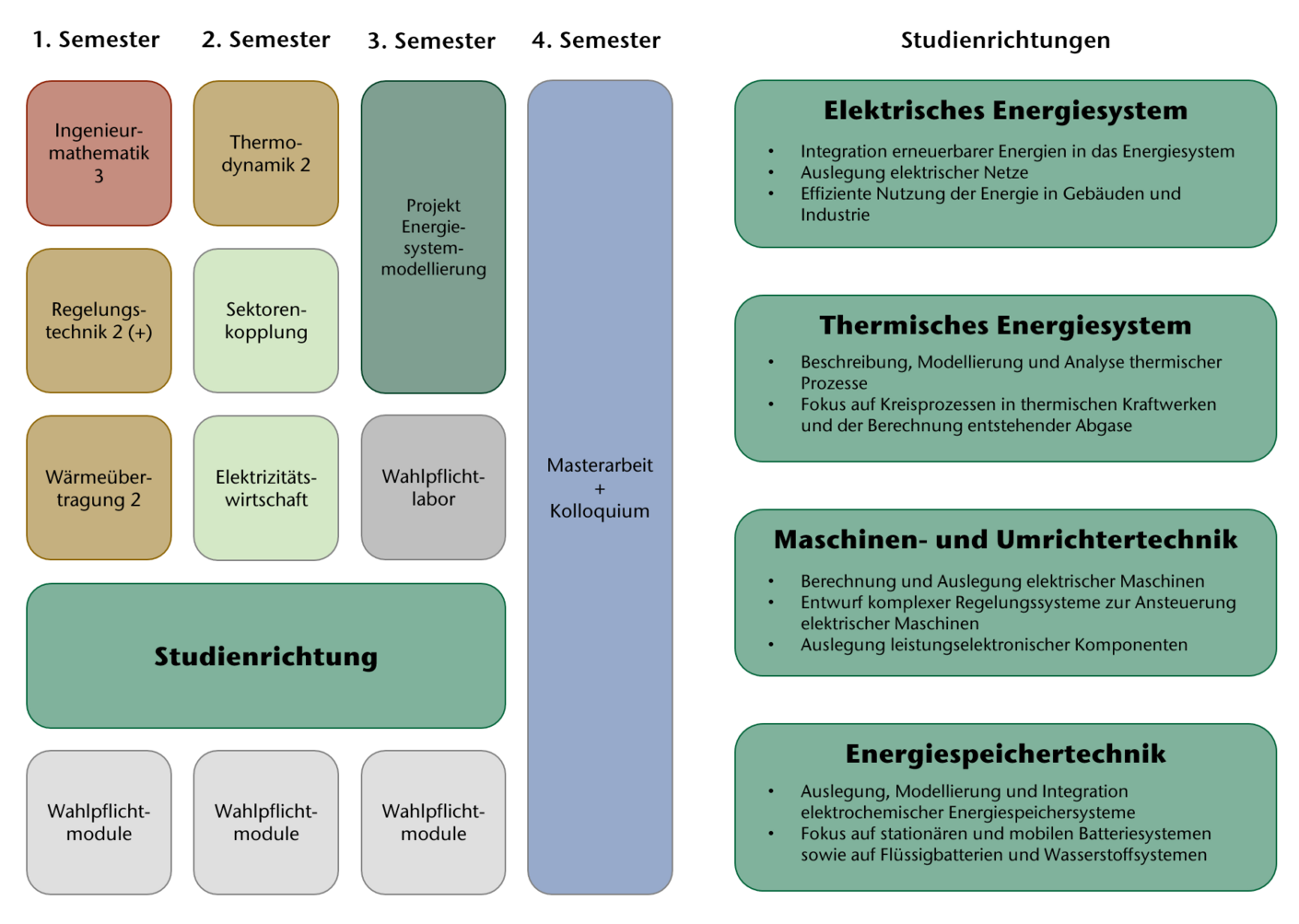The Institute of Electrical Power Engineering and Energy Systems offers two consecutive degree courses, the Bachelor's degree course in Sustainable Energy Technology and Systems and the Master's degree course in Energy Systems Engineering, which will train you for the sustainable restructuring of the energy system to ensure an efficient and low-emission energy supply. While the Bachelor's course covers the entire breadth of energy technology, the Master's course allows you to specialize in a core topic of energy technology and systems. The aim of both courses is a comprehensive systems approach so that you can help shape the energy transition.
Your studies to accelerate the energy transition
Progressive climate change requires a fundamental rethink: from the power plant to the socket, we need a CO2-free and sustainable energy system. To achieve this, fossil-fuel power plants must be replaced by renewable energy generators such as photovoltaic and wind power plants and fossil fuels in the heating, mobility and industrial sectors must be replaced by greenhouse gas-free alternatives such as green hydrogen.
The Sustainable Energy Technology and Systems degree program trains broad-based engineers with an overview of the entire energy system. Based on scientific and engineering principles, you will learn how to apply established and future-oriented technologies for energy generation, conversion and distribution. You will also gain an insight into the economic and legal framework conditions that are important for implementing the energy transition. At the same time, you will be able to apply, deepen and combine your knowledge in internships and projects to develop solutions for the energy transition.
Job profile and labor market
The energy supply in Germany is one of the most secure in the world. To ensure that this remains the case in the course of the energy transition, specialists are needed in all areas who can maintain an overview and develop a secure, affordable and sustainable energy system in an interdisciplinary manner. Energy technologists can plan, project and mediate between the conflicting priorities of technical possibilities, economic and legal restrictions and public acceptance.
Graduates are able to take up leading positions in a wide range of professional fields. In addition to the manufacture of generation, storage and conversion systems, this also includes energy management in companies or their products. Further job opportunities are offered by engineering offices, energy suppliers and grid operators, but experts in the energy system are also needed in authorities and associations or in politics.

Structure of the study program
- Broad engineering education
- Electrical, mechanical and thermodynamic fundamentals
- Consideration of the entire energy system
- Energy technology application subjects
- Compulsory elective area for specialization
- Application-oriented through project and industrial internship
Focus on the big picture
The energy system is undergoing the most fundamental restructuring since it was established. Fluctuating renewable energies on the one hand and increasing electricity demand due to sector coupling on the other must be coupled efficiently and intelligently. The Energy Systems Engineering course prepares you for this by combining all the components of a sustainable energy system.
Building on engineering and energy technology fundamentals as well as an introduction to the energy industry and legal framework, you can specialize in the areas of electrical or thermal energy systems, machines and converter technology or energy storage technology. You can deepen, link and apply your knowledge in an extensive catalog of compulsory electives and a final project before your Master's thesis.
As part of the "Sustainable Energy Systems" research focus at Clausthal University of Technology, the degree course is closely linked to other degree courses and the TU's research centers.
Job profile and labor market
The energy transition affects us all, and the professional fields after graduating from the Energy Systems Engineering course are correspondingly diverse. In industry, your potential employers are not only the manufacturers of energy systems, but rather all companies in which energy is generated, converted or used. There are also project planners and operators of energy systems, grid operators and energy suppliers. In addition, you can mediate between the players involved in the energy transition and society in authorities, associations or politics.
The link between the degree course and the university's research centers gives you the opportunity to get involved in scientific work during your studies. Contact with other research institutes and industrial companies can be established as part of the project and Master's thesis. This makes a subsequent career in research possible, for example as part of a doctorate at Clausthal University of Technology.
News
Successful re-accreditation
The Bachelor's degree programme in Sustainable Energy Technology and Systems and the Master's degree programme in Energy Systems Engineering have been successfully reaccredited. Following extensive revision of the curricula, ASIIN awarded both degree programmes its seal of approval, confirming that the requirements of science and professional practice are met at a high level. At the same time, it documents that a secure framework for good teaching and successful learning is in place. The award of the seal is based on recognised learning outcome-oriented subject standards in accordance with the European Qualifications Framework and the "European Standards and Guidelines".
Contacts

Course coordinator
Prof. Dr.-Ing. Ines Hauer
IEE R806

Academic Advisor
Hannes Hanse, M.Sc.
IEE R801
Questions and consultation appointments
Bachelor Sustainable Energy Technology and Systems: ba.nets@tu-clausthal.de
Master Energy System Technology: ma.est@tu-clausthal.de
